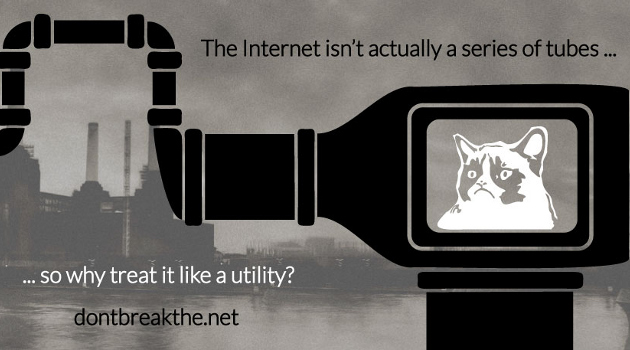The internet has prospered free of government control and regulation. The relative lack of barriers to commerce and trade offered by the internet has foster significant growth and innovation. President Obama’s announced desire to regulate the internet as a public utility threatens to prevent Americans from continuing to reap these benefits, and suffers from a host of other serious problems.
Ted Cruz is right to warn that “Net Neutrality is Obamacare for the internet.” The disastrous rollout of the Obamacare exchange websites should caution anyone who things politicians and bureaucrats are equipped to manage and regulate the functioning of the internet. The President has also failed to make an affirmative case for why existing market accountability mechanisms are suddenly insufficient to continue protecting consumers as they have done since the internet first took off.
If heeded, the President’s call to “reclassify” broadband under Title II of the Communications Act would represent a major and disturbing power grab on the part of the FCC, and a blatant disregard for the rule of law. It would also “break the internet,” as explained at DontBreakThe.Net:
Title II would put the FCC squarely in the middle of the Internet — right beside the NSA. It saddles the Internet with price controls and other heavy-handed rules from a thankfully long-gone era. The debate over Title II isn’t a debate over net neutrality, which is why many net neutrality proponents actually oppose Title II. Instead, it’s a debate between a vocal minority that wants greater government control over broadband companies, and defenders of a bipartisan consensus around a “Hands Off the Internet” approach.
The President’s announcement also undermines the rule of law by threatening to (further) politicize an ostensibly independent agency. AEI’s Center for Internet, Communications, and Technology Policy Director Jeffrey Eisenach noted:
“The Federal Communications Commission was created to be an independent regulatory agency, above and beyond the reach of crass politics. The White House’s decision to intervene in an ongoing rulemaking makes a mockery of any sense of independence or impartiality.
A legitimate case can be made that a decision as large, and as lacking in statutory basis, as the FCC’s intervention in the net neutrality matter is correctly a matter for politicians, not bureaucrats. To the extent that is the case, however, there is only one legitimate route, and it starts in the Congress, not the White House.
If the FCC bows to pressure from the White House on this issue, the agency’s reputation will suffer a terrible stain.”
Finally, TechFreedom explains how Title II does the opposite of promoting the principles of net neutrality the President claims to be advancing:
Title II means the very opposite of net neutrality. Even under Title II, the FCC can’t legally ban all paid prioritization — only regulate it to make sure that prices are just and reasonable. In fact, Title II would authorize broadband providers to charge some price to content and service providers for carrying their traffic to users — and there’s no precedent for the FCC from “forbearing” from this requirement in a market that it claims is a “terminating access monopoly.” Title II would raise a host of other problems, including choking broadband competition, inviting regulation of the rest of the Internet and validating Russia and China’s push to have the International Telecommunications Union regulate the Internet as a telecom service.
The President is no doubt still reeling from the electoral drubbing his party took in the recent midterm elections. He shouldn’t take his anger out on the internet.

